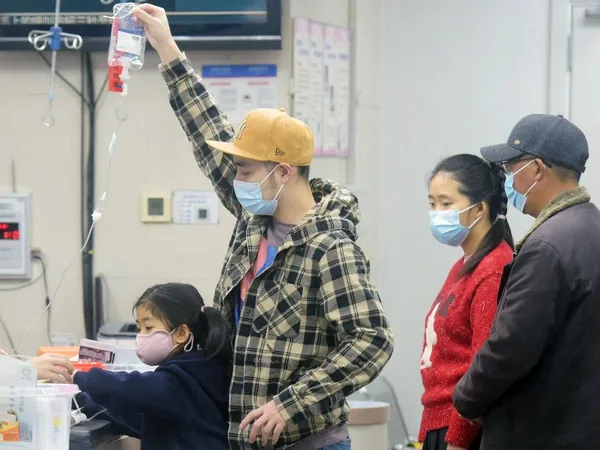
Everything You Need to Know About Human Metapneumovirus (HMPV) Amid Rising Cases
2025-01-07
Author: Olivia
As new headlines circulate about a virus in China, there's no immediate cause for alarm regarding human metapneumovirus (HMPV), a pathogen that has gained notoriety this winter with an increase in respiratory illnesses and hospitalizations.
What is Human Metapneumovirus?
Human Metapneumovirus is a member of the Pneumoviridae family and is closely related to respiratory syncytial virus (RSV). Most infections lead to mild cold-like symptoms, including a cough, fever, nasal congestion, and sometimes more severe conditions like bronchitis or pneumonia. Symptoms generally resolve within a week without medical intervention for healthy individuals.
Transmission of HMPV occurs through close contact, particularly when an infected person coughs or sneezes. Consequently, its prevalence increases during colder months, especially winter and spring.
Why the Sudden Surge in Attention to HMPV?
The recent spotlight on HMPV can be attributed to enhanced viral detection capabilities developed post-COVID-19 pandemic. Governments have invested heavily in testing protocols, enabling rapid identification of respiratory pathogens, including HMPV. Past viral detection methods often resulted in delays, but modern tests can yield results in as little as half an hour, improving our understanding and response to outbreaks.
As China continues to report increased cases, neighboring nations such as India, Malaysia, and Hong Kong have begun monitoring the situation closely, urging the public to remain calm and informed.
Is HMPV Widespread?
While HMPV is not new, its detection has become more widespread in recent days, with multiple countries reporting cases. The B.C. Centre for Disease Control has indicated that since March 2023, 7,990 samples in British Columbia have led to 510 confirmed cases of HMPV, showing a positivity rate that has fallen from around 10% to below 5% as of recent reports.
Treatment and Prevention
Currently, no vaccines or antiviral treatments exist for HMPV. Medical professionals focus on alleviating symptoms while urging the public to engage in practical prevention methods. Regular hand washing, practicing respiratory etiquette, and avoiding close contact with sick individuals are critical steps to mitigate the spread of HMPV.
If someone develops cold-like symptoms, they are advised to stay home and consult a physician if they experience severe cough or difficulty breathing.
Conclusion
While HMPV is gaining traction in the media, especially with the winter season in play, experts stress the importance of remaining informed rather than alarmed. By understanding HMPV and adopting preventive measures, the public can navigate this health concern effectively. Keep an eye on ongoing updates as health agencies around the globe remain vigilant in monitoring the situation.
Stay alert, stay safe, and remember: knowledge is your best defense!









 Brasil (PT)
Brasil (PT)
 Canada (EN)
Canada (EN)
 Chile (ES)
Chile (ES)
 Česko (CS)
Česko (CS)
 대한민국 (KO)
대한민국 (KO)
 España (ES)
España (ES)
 France (FR)
France (FR)
 Hong Kong (EN)
Hong Kong (EN)
 Italia (IT)
Italia (IT)
 日本 (JA)
日本 (JA)
 Magyarország (HU)
Magyarország (HU)
 Norge (NO)
Norge (NO)
 Polska (PL)
Polska (PL)
 Schweiz (DE)
Schweiz (DE)
 Singapore (EN)
Singapore (EN)
 Sverige (SV)
Sverige (SV)
 Suomi (FI)
Suomi (FI)
 Türkiye (TR)
Türkiye (TR)
 الإمارات العربية المتحدة (AR)
الإمارات العربية المتحدة (AR)